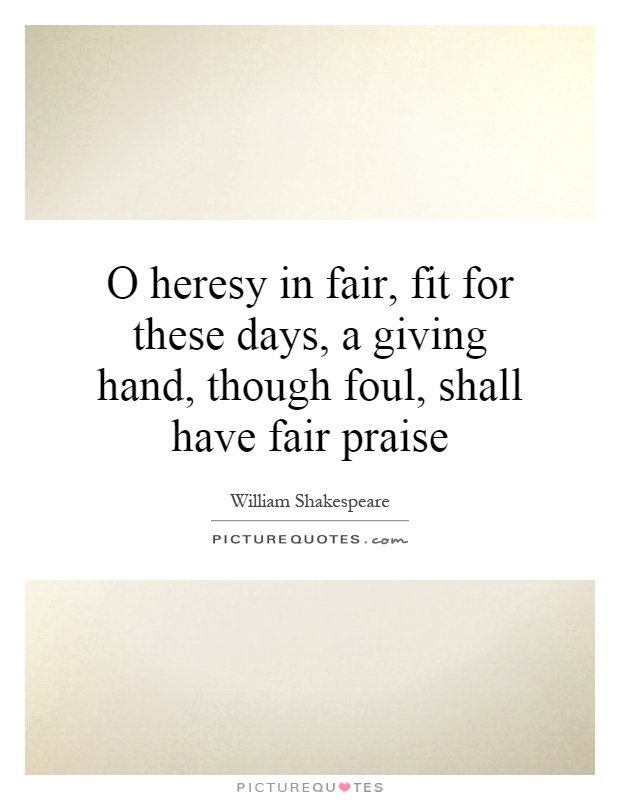O heresy in fair, fit for these days, a giving hand, though foul, shall have fair praise

O heresy in fair, fit for these days, a giving hand, though foul, shall have fair praise
The line "O heresy in fair, fit for these days, a giving hand, though foul, shall have fair praise" from William Shakespeare's play "Henry IV, Part 1" speaks to the complex nature of morality and ethics in society. In this context, the character of Prince Hal is reflecting on the idea that even actions that may be considered morally questionable or controversial can still be praised and admired by others.The term "heresy" in this line refers to beliefs or actions that go against established norms or beliefs, suggesting that Prince Hal is aware of the potential backlash he may face for his actions. However, he also acknowledges that in the society he lives in, a generous and giving nature, even if tainted by other faults, will still be celebrated and admired.
This line highlights the theme of appearance versus reality in Shakespeare's work, as Prince Hal is able to manipulate the perceptions of those around him through his actions. Despite his questionable behavior, he is able to maintain a facade of respectability and garner praise for his generosity.
Furthermore, the line also speaks to the idea of moral relativism, suggesting that what is considered right or wrong can vary depending on the context and the values of society. In this case, Prince Hal recognizes that his actions may be seen as heretical or immoral by some, but he also understands that in the society he inhabits, a giving hand will still be valued and praised.
Overall, this line from "Henry IV, Part 1" showcases Shakespeare's ability to explore complex moral and ethical dilemmas in his work. It challenges the audience to consider the complexities of human nature and the ways in which individuals navigate the expectations and values of society.












 Friendship Quotes
Friendship Quotes Love Quotes
Love Quotes Life Quotes
Life Quotes Funny Quotes
Funny Quotes Motivational Quotes
Motivational Quotes Inspirational Quotes
Inspirational Quotes